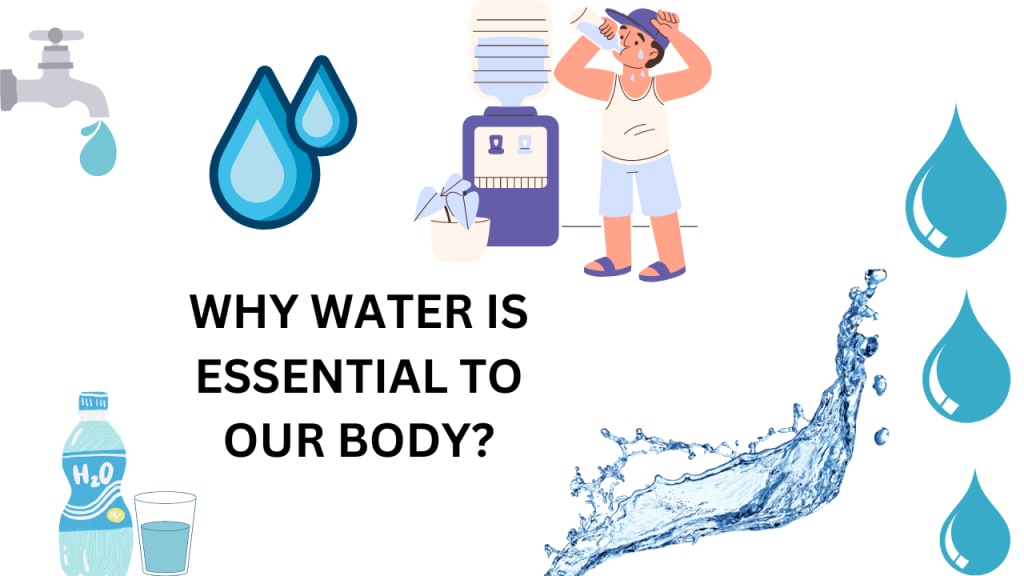WHY WATER IS ESSENTIAL TO OUR BODY?
WATER NEEDS

Water is present in almost everything, including our body's cells and the moisture in the earth and ice caps.
The average human body contains between 55 and 60 percent water, depending on location, age, sex, and fat index.
Human newborns are even drier at birth.
Since they are made of 75% water, they swim similarly to fish.
But by the time they turn one year old, their water content falls to 65%.
What function does water serve in our bodies, and how much does it take to maintain good health?
Our bodies use H20 to lubricate and cushion joints, control body temperature, and support the brain and spinal cord.
Not just water exists in our blood.
The heart and brain of an adult are nearly three-quarters water.
That is about the same as the moisture content of a banana.
At 83%, the lungs are more like an apple.
Even human bones that appear to be dry contain 31% water.
Given that we are primarily composed of water and that it is all around us, why do we still need to drink so much?
We lose two to three liters of water every day via breathing, perspiration, bowel movements, and pee.
Even though these processes are necessary for our existence, we still need to make up for the lost fluid.
It's crucial to keep your water level balanced to prevent dehydration or overhydration, both of which can seriously harm your general health.
The brain's hypothalamus uses sensory receptors to detect low water levels and triggers the release of antidiuretic hormone.
It entered the kidneys and produced aquaporins, which are unique channels that allow blood to absorb and hold onto more water.
resulting in black, concentrated urine.
Dehydration can lead to significant reductions in blood pressure, energy, mood, skin hydration, and cognitive impairment.
A dehydrated brain expends more energy to achieve the same tasks as one that is properly hydrated, and it may even undergo temporary shrinkage as a result.
The most common cause of hyponatremia, or overhydration, is consuming an excessive amount of water quickly.
Because it might be difficult to control their water balance in physically demanding situations, athletes are frequently the victims of overhydration.
The brain that is overhydrated slows down or even stops releasing antidiuretic hormone into the blood, whereas the dehydrated brain increases the synthesis of this hormone.
The body dilutes its sodium electrolytes, which results in cell swelling.
In extreme situations, the kidneys are unable to cope with the ensuing
spectrum that changes according to our age, activity level, health, or level of overheating.
Although water is the most healthful hydrator, other drinks—including caffeinated ones like tea and coffee—also replenish fluids.
Over a fifth of the H20 we consume each day comes from the water in meals.
Since they contain more than 90% water, fruits and vegetables like broccoli, strawberries, and cucumbers can be added to a diet to increase fluid intake while also offering important nutrients and fiber.
Good drinking may also provide several long-term advantages.
According to studies, maintaining proper hydration can help control diabetes, lessen the risk of stroke, and possibly even lower the risk of some cancers.
Whatever the case, drinking the appropriate quantity of liquids has a profound impact on your daily mood, cognitive processes, and overall functioning.





Comments
There are no comments for this story
Be the first to respond and start the conversation.